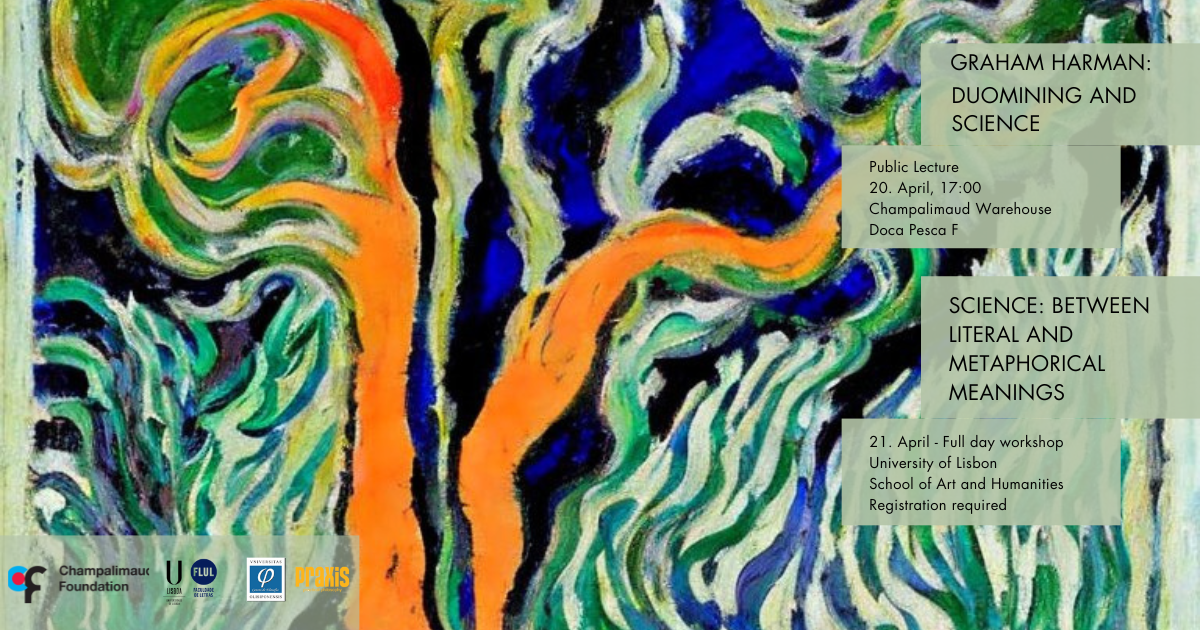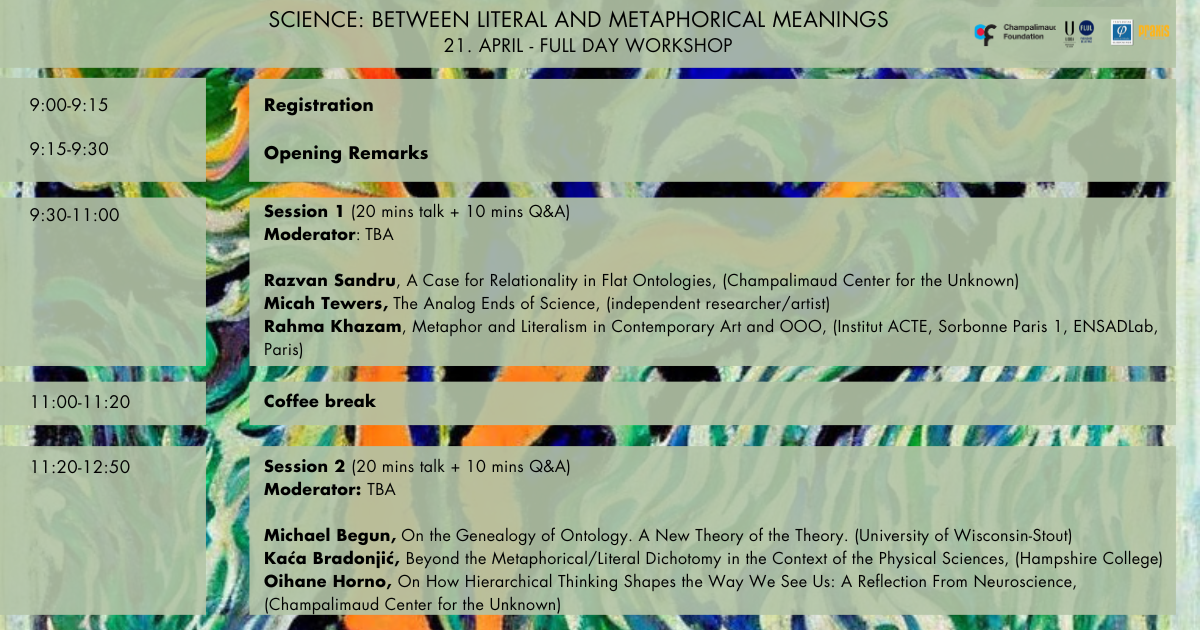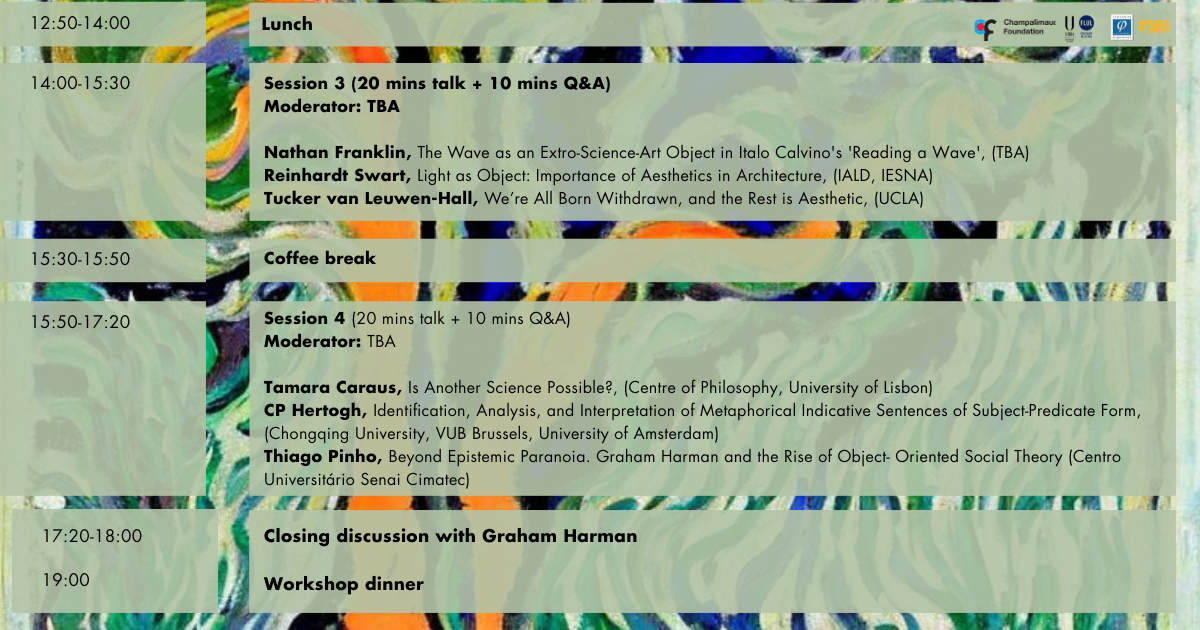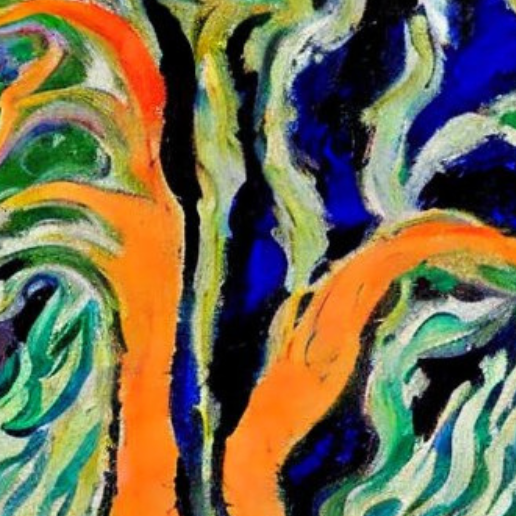Modern scientific endeavours are often guided by the positivistic ideal of obtaining a neutral, detached point of observation from which truths about the world can be deduced and believed to hold independently of the socio-political context in which they were obtained.
Philosophical and sociological perspectives have however long highlighted that science and the contents of its discoveries are not to be separated from the context in which they are practiced, nor are they to ignore the impact that objects, artifacts, or natural events have in structuring our social, political, or physical realities.
In the same spirit, Graham Harman argues that the human dimension of reality is just one of many, equally real non-human realities. Within this shared ontological space, all beings – termed objects in Harman’s system – have sensual qualities, i.e. the ones that define an object in relation, and real qualities, i.e. the ones that define the object withdrawn from all interactions and relations.
Within this framework Harman distinguishes between two ways of knowing: a literal one that takes phenomena to be the sum of their features as they appear to us and a metaphorical one that hints at an infinite interiority of objects and brings about the awareness that there is always more to them than meets the eye. Harman argues that literalism is the mode by which science knows things, while the way that art and aesthetics approach objects is instead metaphorical. In contrast to literalism, “the metaphor seems to give us the thing in its autonomy from the other things to which it relates.” In Harman’s reading, the metaphor suspends the sensuality of the object and alludes to its real core.
This workshop will explore whether Harman’s assessment of science’s method is apt and whether a dialogue between the two ways of knowing might benefit the endeavours of both aesthetic and scientific inquiry.
April 20 > Keynote lecture by Graham Harman
"Duomining and Science"
> Champalimaud Warehouse, Doca Pesca F @ 5pm
> With participants and general public.
Graham Harman is Distinguished Professor of Philosophy and Liberal Arts Programme Coordinator at SCI-Arc. He was born in 1968 in Mt. Vernon, Iowa, and earned his BA from St. John's College (Maryland), his MA from Penn State University, and his PhD from DePaul University. He is the author of eighteen books, most recently Art and Objects (Polity, September 2019). Graham is the 2009 winner of the AUC Excellence in Research Award. In 2015 he was named by ArtReview as the #75 most powerful influence in the international art world, and in 2016 was named by The Best Schools to their alphabetical list of the 50 most influential living philosophers.
April 21 > Full Day Workshop
Science: between literal and metaphorical meanings
> University of Lisbon
> With invited keynote and selected participants.
> Limited places available. To register send an email to razvan.sandru@research.fchampalimaud.org
April 21 Programme



Organisers
> Adrian Razvan Sandru, Champalimaud Foundation
> Tamara Caraus, University of Lisbon
> Zachary Mainen, Champalimaud Foundation
> Federica Gonzalez, University of Tuebingen
> Giorgio Gristina, Champalimaud Foundation
> Scott Rennie, Champalimaud Foundation




